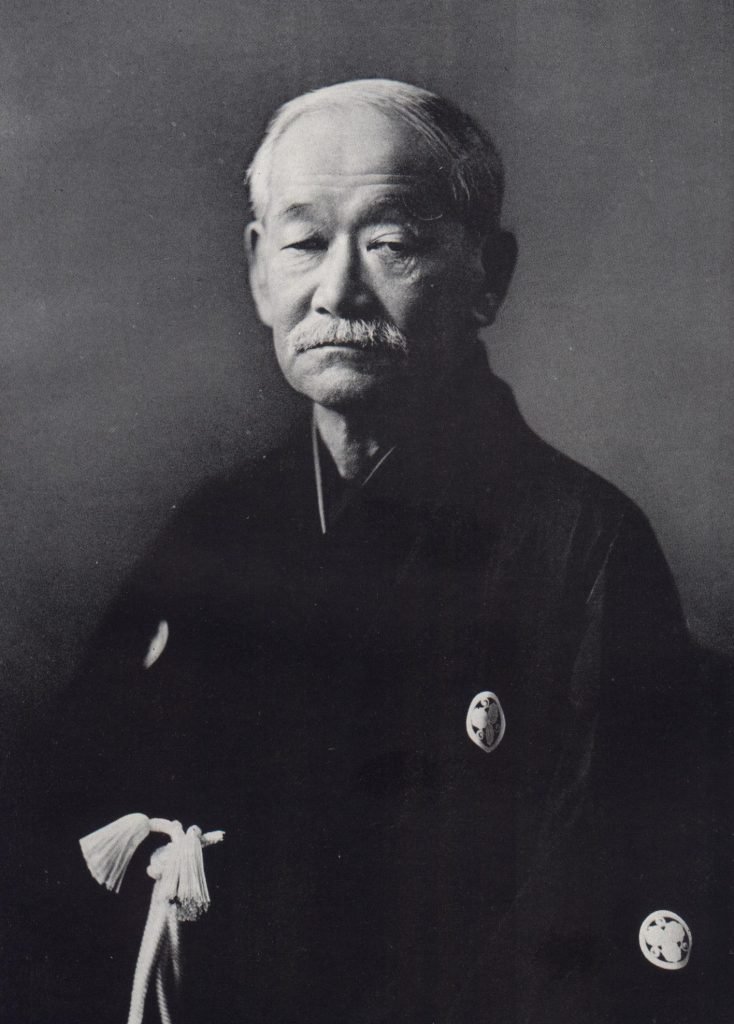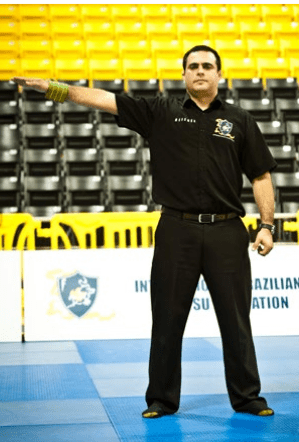If you train Brazilian Jiu Jitsu (BJJ) then at some point you’ve probably wondered why you need to specify that it’s Brazilian... especially since the founder Mitsuyo Maeda came from Japan! Japanese Jujutsu and Brazilian Jiu Jitsu have many similarities, but they also have many distinct differences. Let’s explore how these arts relate and figure out which is best!
Jujutsu, Jiu Jitsu – What’s in a name?
Today the word Jiu Jitsu generally refers to Brazilian Jiu Jitsu, while Jujutsu refers to the traditional Japanese martial art. However, both spellings are simply ways of writing out the same Japanese characters and the difference is only a matter of how the term was translated at different points in time. The literal translation of “Jiu Jitsu” and “Jujutsu” is “gentle art.”
We’ll maintain the distinct spelling for clarity and to help readers differentiate between the two.
A Brief History Lesson
The origins of Jujutsu
Like many martial arts; Jujutsu was born in the cradle of Japan. These techniques were developed for unarmed defense. Jujutsu was founded on the core idea of using an opponent’s weight against them – a concept that Jigoro Kano would later borrow while developing Judo.
It is hard to pinpoint an exact date the art was invented because it emerged during a tumultuous time in Japan. However, it was probably sometime in the Edo Period, in the 17th century.
Did Brazilian Jiu Jitsu come from Jujutsu?
No, Jiu Jitsu did not come from Jujutsu. By the time Kano had founded Judo, Jujutsu had died out in Japan. However, many moves that Kano incorporated into Judo came from traditional Japanese Jujutsu.

This explains why Judo, BJJ, and Jujutsu often look so similar and have many of the same moves. But despite the similarities, modern day Brazilian Jiu Jitsu was forged in no holds barred mixed martial art fights in Brazil and is not a direct descendent of Jujutsu.
Differences between Jujutsu and BJJ
The main difference between the Jujutsu and BJJ is that modern Jiu Jitsu has evolved into more of a sport, while Jujutsu is definitely more of a traditional martial art. The more technical differences between the two are that Jujutsu incorporates more throws, takedowns, and also includes elements of striking. Like other traditional martial arts, Jujutsu has a focus on discipline.
Techniques and Rules
The biggest technical difference between BJJ and Jujutsu is that Jujutsu incorporates striking and responding to thrown strikes. Drills in Japanese Jujutsu might involve sidestepping when your partner moves to punch you. It also involves working takedowns, kata, and striking on the ground. In practice, many of the moves are very choreographed.
BJJ on the other hand doesn’t include striking and has evolved to have a heavy sport orientation. It is possible to win a competition match in BJJ on points earned during the match. In place of striking, BJJ teaches distance management – knowing when your opponent is in range to strike you and how to pin them in a position where they can’t strike you.
Martial art versus Sport
The line between “sport” and “martial art” is a thin one. Many UFC fighters got their start in Brazilian Jiu Jitsu. However in BJJ competitions, a victory can be secured by points. Japanese Jujutsu also has competitions, although not as many. Don’t be surprised if you’ve never heard of any in your area.

It is more difficult to organize competitions for Japanese Jujutsu because it was designed primarily as a self defense art. Sometimes Japanese Jujutsu competitions might split the rounds into striking and grappling portions. It is also more difficult to organize competitions in Jujutsu because Jujutsu generally doesn’t have sparring or rolling like BJJ.
Belts and Promotions
A majority of BJJ gyms use the International Brazilian Jiu Jitsu Federation’s (IBJJF) belt system:
- White
- Blue
- Purple
- Brown
- Black
Japanese Jujutsu, however, has more belts and not all Jujutsu gyms recognize the same belt progression. For example some Jujutsu gyms start people out at red belt instead of white. A typical Jujutsu belts system looks like this:
- White
- Yellow
- Orange
- Green
- Blue
- Purple
- Brown
- Black
It should also be noted that although Japanese Jujutsu has more belts, it would probably take longer to progress through the Brazilian Jiu Jitsu belt ranks.
Similarities between Jujutsu and BJJ
There are more similarities between Jujutsu and BJJ than differences. They work many of the same positions like Kesa-Gatame and side control. Also both Jujutsu and BJJ train in the gi. Likewise, both martial arts share many similarities with Judo.
Self Defense
Discussing the topic of “self defense” can be a difficult one because there’s always another “what if.” Both of these martial arts can teach you valuable techniques that could help in a street fight. Although Jujutsu does train with striking, they don’t do sparring or rolling in every class like BJJ does. Also many UFC fighters got their start in BJJ – giving BJJ a proven track record.
Uniform
The uniforms in BJJ and Jujutsu are very similar. Both wear the traditional Japanese gi. However BJJ gi’s tend to be thicker and longer, like Judo gis. This is because BJJ has more moves that require practitioners to grab the gi. Japanese Jujutsu classes do not have a no-gi counterpart like BJJ.
FAQs
How long does it take to get a black belt in Japanese Jiu Jitsu?
On average it takes about 5 years to get a black belt in Jujutsu.
How long does it take to get a black belt in Brazilian Jiu Jitsu?
On average it takes about ten years to get a black belt in Brazilian Jiu Jitsu.
Is Brazilian Jiu Jitsu more effective than Jujutsu?
Questions like this can be debated endlessly. While Japanese Jujutsu practices with striking, many of the moves are choreographed. Also while BJJ trains with rolling, and live pressure, it does not include striking.
What does Jujutsu/jiu jitsu mean?
The literal translation is “gentle art.” The reason they are spelled differently is because of the way they were translated. They are pronounced the same.
How old is Brazilian Jiu Jitsu?
Although some accounts very on the exact year, it was sometime around 1925 the Gracie family opened their first gym. BJJ is a relatively new martial art.
How old is Japanese Jiu Jitsu/ Jujutsu?
Japanese Jujutsu was developed in the 17th century during the Edo period in Japan. However it should be noted there was a period of time where Jujutsu died out, and then was restored later. Although some practitioners claim the art is “ancient” it isn’t quite old enough to hold this title.
So Which is Best?
It might be easy to conclude that BJJ is more effective because it has live sparring sessions, more competitions, and is practiced by more people (including UFC fighters.) However traditional Japanese martial arts do offer many effective techniques and teach discipline. Japanese Jujutsu can also offer a unique insight into Japanese culture.
If you are training martial arts for self defense, nothing will prepare you better than live sparring. BJJ can show you the gap between someone who has been training for years, and someone who is just starting out. BJJ will also get you accustomed to what live pressure feels like.
Japanese Jujutsu on the other hand does train with strikes, but these are often just drills, and katas. Currently BJJ has a much bigger following than Jujutsu which means that there will be more opportunities for competitions. It also means that it will probably be easier to find a gym, and more people who train to make friends with.
Conclusion
The debate of “the most effective” martial art is a narrow minded one. The best martial art to train is the one that you will enjoy and consistently show up for. If you’re debating if you should try Jujutsu or BJJ then you should try both of them. See which one you like better and then devote yourself to it. If you enjoy both and have the time, there is no reason not to do both!

Jack is a D who holds a bachelors degree in English Literature. He enjoys traveling, reading, and the Bow and Arrow choke. One day he hopes to teach English overseas and become a published author.
